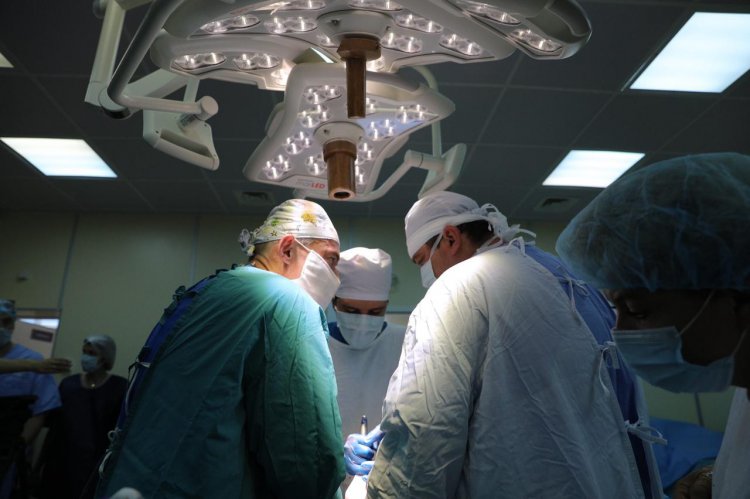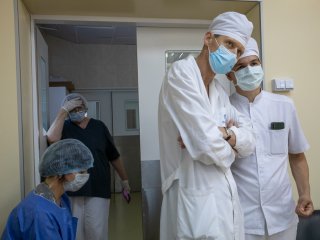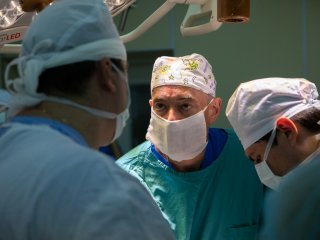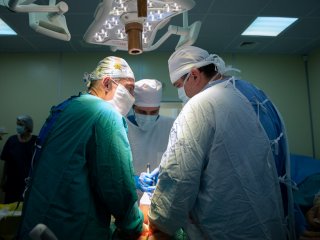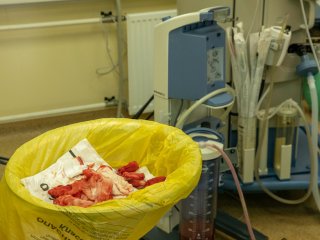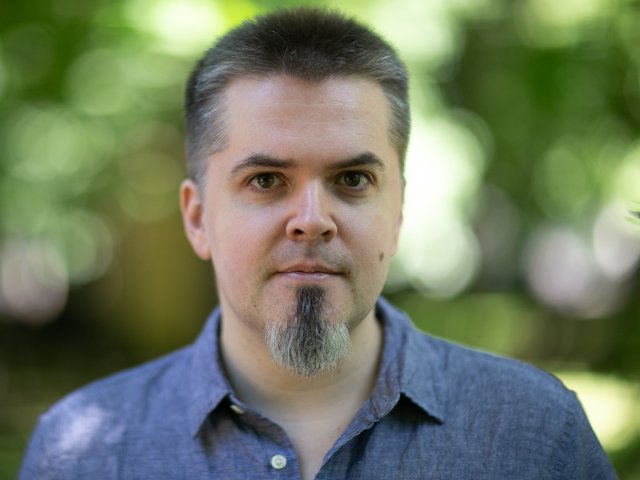On July 20, during the press tour to the naukograd (science town) of Obninsk, Kaluga Region, the leading Russian media visited A. F. Tsyba Medical Radiological Scientific Center. Today, a 73-year-old patient with a recurrent cervical cancer underwent surgery here. The participants of the press tour had the chance to visit the operating room together with RAS Academician Kaprin, the chief visiting oncologist of the Ministry of Healthcare of the Russian Federation, and Valeriy Korotkov, Head of the Division of Surgical and Conservative Treatment of Radiolesions with the restorative plastic surgery group.
Sometimes, despite oncologists’ efforts, the cancer refuses to be defeated and comes back as a recurrent tumor. This is not uncommon in cervical cancer cases. A relapse means that that the tumor grows back after it was removed, from the left-over cells that remained unnoticed. In the 73-year-old patient operated on by the specialists from Tsyba Center, the relapse came as a tumor mass in the small pelvis, which extended to the bladder and the vagina.
“We are trying to remove the tumor, while preserving her own bladder and intestine. But it’s not always possible,” Andrey Dmitrievich commented on the surgery process. Unfortunately, such operations often end up badly. That is why not all clinics perform them. Sometimes, the doctors have to remove the bladder and reconstruct it using an intestine. This is the main difficulty.”
The main task in such reconstructive interventions is to perform radical excision of impacted tissues and to adequately cover the defect in a single stage. Sometimes, radiolesions repress all reparative processes, and the disease becomes chronic. Therefore, early surgical excision of impacted tissues prevents grave consequences, saves the patients from suffering and improves their quality of life.
Moreover, radiolesions on small pelvis organs may lead to ulcers and fistulas. As a result, physiological liquids ooze via orifices that are not fit for that. This process always causes significant physical pain and social issues.
“For a surgeon, the small pelvis is a complex and tight area, with large vital vessels. And the most “popular” location for metastasizing is lymph nodes,” Kaprin pointed out. The main visiting oncologist also emphasized that he had recently operated on young patients, aged 32 to 34. “Cervical cancer is rather a “young” disease.” This is why it is so important to take care of your health from a young age. “Our main job is to fight for the patient’s life and for its quality. It’s important to us that our patients are able to live well, work and enjoy life. I am talking about physical rehabilitation.”
The arsenal of modern surgeons includes a unique electric scalpel and LigaSure electric vessel sealing system. “An electric scalpel can remove scars that regular surgical scissors cannot handle. However, it takes care and confidence to use the scalpel, to avoid burning healthy tissue,” Kaprin explained. LigaSure speaks for itself: “ligare” means to link, to seal, and “sure” means confidence. That is, confident sealing. The technique that can stop the bleeding instantly.”
“These are extended, rather traumatic but effective surgical interventions,” was Kaprin’s conclusion at the press conference. Although complicated, they remove tumors and extend the patients’ lives. And that’s what matters to oncologists.
This article was prepared with the support from the Ministry of Science and Higher Education of the Russian Federation and the Russian Academy of Sciences.

